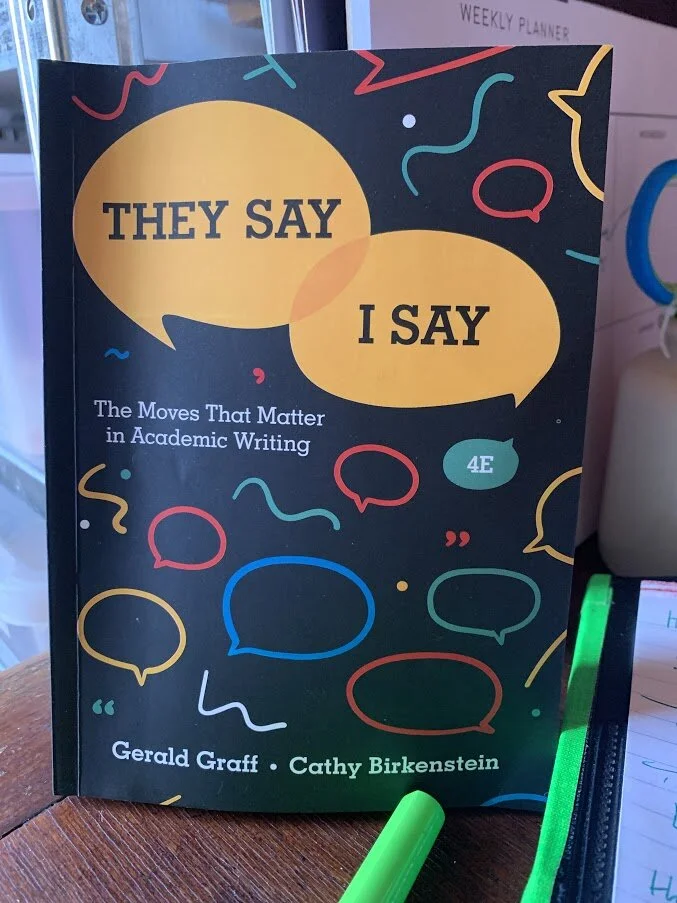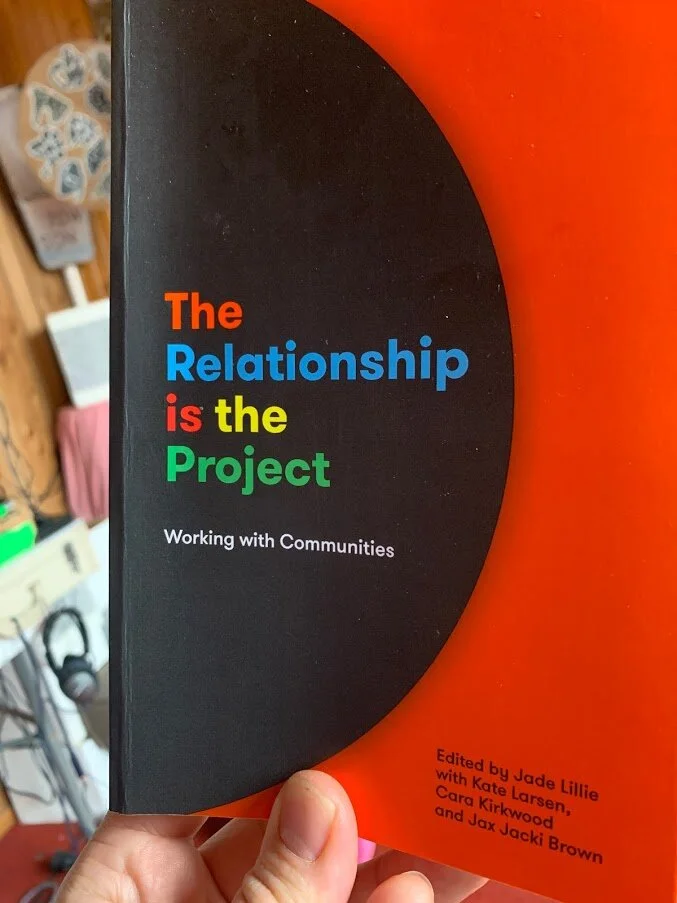They Say / I Say
PREFACE
They Say / I Say by Gerald Graff and Cathy Birkenstein
Just starting this book and I can see how useful it will be as I begin my writing for this PhD. It Suggests a series of templates can be the way to open up academic writing and show it’s workings (without making it formulaic).
Basically, I have to summarise the “They Say” to set up my argument (“I Say”)
Check out the They Say I Say blog HERE
Some Logical principles of argument not covered in the book (but worth an investigation)
Syllogisms: An argument that arrives at a conclusion based on two or more propositions :
“All men are mortal. Socrates is a man. Therefore, Socrates is mortal.”
Warrants: The reason the evidence supports a claim. Or the reason the evidence is trustworthy and therefore your argument is built on a solid foundation of fact.
Logical Fallacies: Basically this is errors in the facts. They can be spotted due to a lack of evidence or misuse of statistics for example. Just think of Donald Trumps’ use of coronavirus statistics.
Inductive Reasoning: This starts with facts and works it’s way to a conclusion through more of an explorative process. It may be a way to generate a hypothesis from a series of facts rather than using those facts to prove a hypothesis.
Deductive Reasoning: Starts with a theory or hypothesis and works its way towards a conclusion based on evidence. For example, my hypothesis is that technology can be used to create engaging interactive experiences. If I can provide examples and evidence that supports this I can deduce (Mr Watson) that technology indeed can be used to create engaging interactive experiences.
Inspiration, musings and cool stuff from the world of music, technology, art, design and probably other random stuff!












